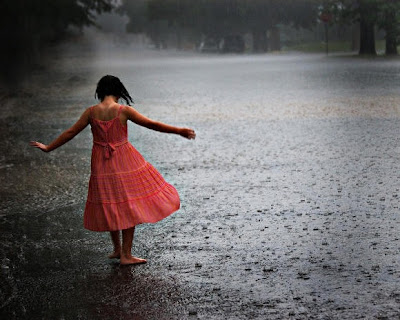Gentle readers, I highly recommend Dr. Albert Mohler's blog article on this subject, also.
[Note: Whenever I refer to the Church, I mean the regenerated followers of Jesus Christ, not some brick-and-mortar structure.]
The Church has allowed Satan, the ancient enemy of Creator God, to steal, or at least taint, many of our celebrations. The man Saint Nicholas, Bishop of Myra, who gave his all to follow the Savior, has morphed into a jolly, rotund, caricature we call Santa Claus, and the Easter Bunny continues to try to usurp the position of the resurrected Savior. Children are taught erroneously that Thanksgiving was a time when the Pilgrims thanked the Indians for helping them to survive in the wilderness.
All Hallows' Eve also has suffered at the hands of the enemy, though not as much as the afore-mentioned, since it was never purely Christian and has clearly pagan origins. Most agrarian cultures celebrate significant events in the seasonal growing cycle: harvest time, solstices and equinoxes, and planting time, for example.
The origins of All Hallows' Eve--Hallowe'en (don't forget the apostrophe)--go back 2,000 years to the Celtic festival of Samhain (pronounced sow-in). The word means "end of summer." Pumpkins, apples, and various gourds were a significant part of that event. The Celtic new year began on November 1. Make no mistake. Samhain was not an innocent harvest celebration. Blood sacrifices--both animal and human--were offered to Druid gods.
By 43 A.D., the Romans had conquered the Celts, and within the following 400 years, had integrated their own pagan festivals into Samhain, including Feralia, occurring in late October. Feralia was a day to commemorate the dead.
"Christianity" spread through the Celtic lands by the 800s. In the eighth century, Pope Gregory III established that November 1 would be All Hallows' Day. According to Roman Catholic belief, All Hallows' Day was when souls were released from Purgatory and allowed to wander the Earth for 48 hours. Apparently, Pope Gregory was attempting to supplant Samhain with a Christianized version. That was Pope Gregory's M.O. He often claimed pagan celebrations and buildings and imposed a "Christian" significance on them. For example, he claimed the Pantheon (which was dedicated by the Romans to "all gods") for a Christian purpose. His All Saints' Eve was celebrated much as Samhain had been, with bonfires, parades, and people wearing costumes of saints, angels, and devils.
______________________________________________________________________
Why would any Christ-follower want to celebrate a day that represents everything for which Jesus Christ gave His life to destroy?
_______________________________________________
Today, many people claim that Hallowe'en is an innocent harvest festival, but a quick trot through the costume section of the local Wal-Mart tells a different story. With a glance backward to Samhain, Feralia, and, yes, All Hallows' Eve, one can see that the culture of death lives and thrives in today's celebration. The holiday is no holy day!
It amazes me that many Christian parents continue to celebrate this time of ghosts, ghouls, goblins, and witches, labeling it "innocent fun." What is innocent about rubber masks that portray people who have been maimed, disfigured, frightened out of their minds, or murdered? Parents who encourage such "innocent fun" are opening the creaking door on the occult and nudging their wee ones over the threshold. Hallowe'en always has flirted with the macabre.
Why would any Christ-follower want to celebrate a day that represents everything for which Jesus Christ gave His life to destroy? Hallowe'en's origins are completely occultic. But children follow the leadership of their parents. May our all-wise LORD grant to those children the wisdom that their parents and grandparents lack. (Consider Deuteronomy 18:14 and Galatians 5:19-21).
Some parents think to avoid the dark side of Hallowe'en by dressing their children as Disney character, vegetables, or historical figures. After all, children love to role-play and dress up. (So do many of us who are adults, in fact.) If it's done at Hallowe'en, it's in celebration of Hallowe'en, even if Snow White doesn't have blood dripping from enlarged eyeteeth. Kids can play dress-up throughout the year. No one day of the year has a corner on that.
Jesus says that He Is the Light of the World (John 8:12). As His followers, we are commissioned to reflect that light in today's dark world (Matthew 5:14), to be imitators of our Lord (Ephesians 5:1).
As for Hallowe'en, we need not reclaim it; we never owned it. Nor should we want to.
Because of Christ,
Sharon

















